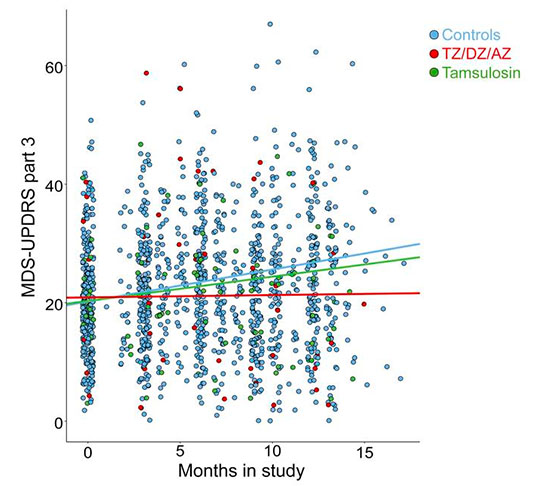Though a little more than ten days remain before our first resident candidate interviews, by the time you read another post from me, they will already be underway. The ERAS application portal opened on September 15 and we have been inundated with more than 2,000 applications so far. Beginning October 7, and extending all the way through the end of January, every Monday and Friday, a dozen fourth-year medical students will spend their day evaluating us and being evaluated. This record level of interest in our program is due to many factors, not least of which is our national ranking as well as our reputation for fostering a culture that demands rigor, while developing a tailored curriculum that supports the potential and career goals specific to the individual resident. It is no small feat coordinating the hundreds of visits, and Residency Director Dr. Manish Suneja, his team and our chief residents, faculty and administrative staff, will have their hands full in the coming months. They should know that we all stand ready to assist in whatever capacity we can, whether it is covering a clinic or sitting down with a candidate interested in a particular subspecialty. To all faculty who have been asked to meet with a candidate, thanks in advance and to those of you who might be approached to speak with a candidate who is interested in your subspecialty, taking the time to do so will pay high dividends. The Education Team’s success is our department’s success and we know that Match Day 2020 will reveal an extraordinary class of new interns because of your hard work.
 This last week brought new evidence of another facet of our education activities. Specifically, our efforts in training medical students is having a profound and growing impact. A recent AAMC survey of medical school graduates showed that 99.1 percent of Carver College of Medicine graduates rated their clerkship in Internal Medicine as good or excellent. The national average is 97.2 percent and the evaluation of our clerkship by Iowa’s graduating medical students puts us above the 90th percentile nationally. Although we work to recruit our best graduates to remain in Iowa for their residency, many will match into top-tier programs at other institutions, who benefit from the training our Iowa graduates have received. Whether our graduates stay at Iowa or go somewhere else, no other specialty drew as much interest from Iowa MDs as internal medicine. In the class of 2019, of the 59 graduates entering primary care training this year, 24 (17 percent of the total graduating class) chose internal medicine. That number has risen from just 10 percent three years ago in 2017. Many factors may contribute to this, but their experience with faculty at Iowa must certainly play a role. In this regard, I want to give special recognition to our clerkship directors (inpatient, outpatient, sub-I, CoC) for your commitment to providing our students with critical skills in this core medical clerkship.
This last week brought new evidence of another facet of our education activities. Specifically, our efforts in training medical students is having a profound and growing impact. A recent AAMC survey of medical school graduates showed that 99.1 percent of Carver College of Medicine graduates rated their clerkship in Internal Medicine as good or excellent. The national average is 97.2 percent and the evaluation of our clerkship by Iowa’s graduating medical students puts us above the 90th percentile nationally. Although we work to recruit our best graduates to remain in Iowa for their residency, many will match into top-tier programs at other institutions, who benefit from the training our Iowa graduates have received. Whether our graduates stay at Iowa or go somewhere else, no other specialty drew as much interest from Iowa MDs as internal medicine. In the class of 2019, of the 59 graduates entering primary care training this year, 24 (17 percent of the total graduating class) chose internal medicine. That number has risen from just 10 percent three years ago in 2017. Many factors may contribute to this, but their experience with faculty at Iowa must certainly play a role. In this regard, I want to give special recognition to our clerkship directors (inpatient, outpatient, sub-I, CoC) for your commitment to providing our students with critical skills in this core medical clerkship.

One benefit of training at Iowa can be seen in the remarkable discovery detailed in the most recent issue of the Journal of Clinical Investigation. In a beautiful example of true interdisciplinary investigation, Iowa researchers Drs. Mike Welsh (Pulmonary), Phil Polgreen (Infectious Disease and Bioinformatics), Nandakumar Narayanan (Neurology), Jacob Simmering (Pulmonary), and Jordan Schultz (Psychiatry, Neurology and College of Pharmacy) found that a drug previously used to target enlarged prostates is also effective at stopping the progression of Parkinson’s disease, a result for which there has been no previous consistent therapeutic solution. The clinical trials soon to begin on a limited basis will be significantly faster given that the drug terazosin (TZ) is already approved by the Food and Drug Administration (FDA). Their discovery, if confirmed in a larger population could be a game changer in terms of the potential benefit for a rapidly aging population, particularly here in Iowa. The other senior author on that JCI paper, Dr. Lei Liu, now faculty at Beijing University, received his PhD in Molecular Biology here at Iowa. One of his mentors? Mike Welsh.
Recruitment for residency slots is not the only ongoing recruitment work. Each division’s leadership is also working hard to fill its fellowship slots. In fact, last Sunday, I ran into a large team from the Heme-Onc Division hosting candidates at one of our local restaurants. It was fun to briefly “crash” a recruitment dinner. One division that should have no trouble attracting the highest caliber trainees is our Division of Gastroenterology and Hepatology. They have continued to build on a rich history stretching back longer than 60 years. It was then under the leadership of Dr. James Clifton (whose name now adorns the Digestive Health Center), that the specific identity of the GI/Hep division emerged and it has continued to grow steadily since then. With savvy recruitment of faculty members who were given the freedom to explore new and cutting-edge methods and therapies, Iowa’s international reputation was built. That tradition of support for faculty excellence continues today under the direction of Dr. David Elliott. I am grateful that he took the time to share with us all the great work he and the faculty and fellows in his division are doing as our division updates series continues.

